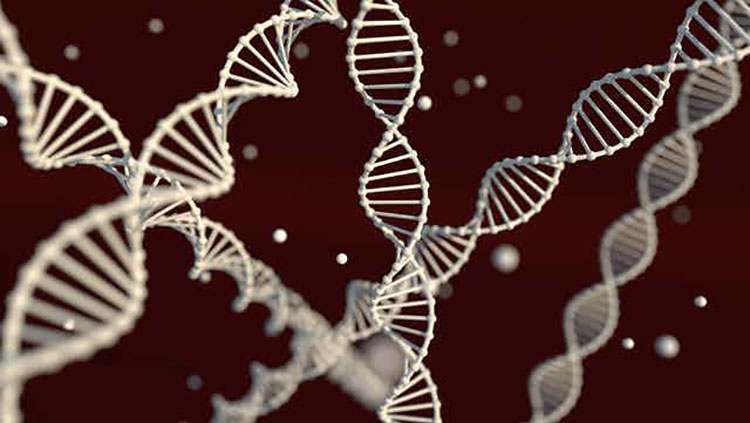How much does Genetics tell us about the risk of disease?
How much does Genetics tell us about the risk of disease?

Genetic studies over the past 20 years have identified many such variants that contribute to the polygenic loading for disease: more than 100 for breast cancer, depression and coronary artery disease, and 38 for Alzheimer’s disease. All these variants can give us information on the underlying biology and new targets for drug development. These variants can also contribute to the calculation of risk scores, indicating those who are at genetically high risk of disease and those who are at low risk.
The term “score” is appropriate here because it can be calculated by simply adding up the number of high-risk genetic variants carried across the genome, weighted by the importance of each variant.
If you look at polygenic scores for a large group of people, most people will have a score that is near average, so their genetics adds little information to their disease risk. A few people will have a high polygenic score, putting them at increased risk of developing a particular disease. Others will have inherited few risk variants, putting them at lower risk of disease.
So are polygenic scores useful? Potentially, yes, but mostly no – not yet. Polygenic scores can give us a personal estimate of our genetic risk for a certain disease, which remains constant throughout life and can be calculated at any point. They could give an impetus to lead a healthy lifestyle, undertake appropriate screening, or be watchful for early symptoms.
Polygenic scores are not available through the NHS but can be derived from the genetic data generated by direct-to-consumer genetic testing companies. These companies test your DNA from a mailed-in saliva sample and give you the option to download your genetic data to your desktop.
Making sense of your score
The MyGeneRank app gives you your coronary artery disease score on your phone by linking to your 23andMe genetic data. This sounds wonderfully accessible, but what can your coronary artery disease polygenic score actually tell you? First, it can tell where your risk lies compared with other people of the same genetic ancestry as you. For example, if MyGeneRank tells a person that their polygenic score lies at the 55th percentile of the distribution, then their risk lies very close to average.
What about someone who is at the 95th percentile, in the top 5% of people with the highest genetic risk? That might be worrying information, but to interpret a polygenic score you need two further pieces of information. First, you need a “relative risk”: how much does your polygenic score change your risk compared with an average person? Does it double your risk or increase it tenfold? Second, you need a “lifetime risk”: what is your chance of being diagnosed with the disorder?
These figures depend on your genetics, how many people develop the disease and how much of the disease risk the polygenic score explains, which is small for most diseases. For example, a woman with a breast cancer polygenic score in the top 1% of the population has a lifetime risk of about 30%. For most disorders, lifetime risks are lower.
A high polygenic score for schizophrenia might be worrying news for people, but our genetic knowledge of schizophrenia is far from complete. The estimated chance of developing schizophrenia for someone with a high polygenic score, seen only in one in 100 people, is 4% compared with a 1% risk for most of the population. This result may be reassuring, but also shows that schizophrenia polygenic scores should not be used clinically. We have developed an online tool to calculate how the lifetime risk of disease changes at different levels of polygenic scores
Geneture, Provides one stop solution of Nucleic Acid Extraction and Analysis. We use nano-biomagnetic beads as the core to produce nucleic acid extractors and their matching magnetic bead nucleic acid extraction kits. There are Animal Genomic DNA Nucleic Acid Extraction Kit, Plant Genomic DNA Nucleic Acid Extraction Kit, Bacterial Genomic DNA Extraction Kit, Whole Blood Genomic DNA Nucleic Acid Extraction Kit,and so on.If you need more information about our products please feel free to contact.
